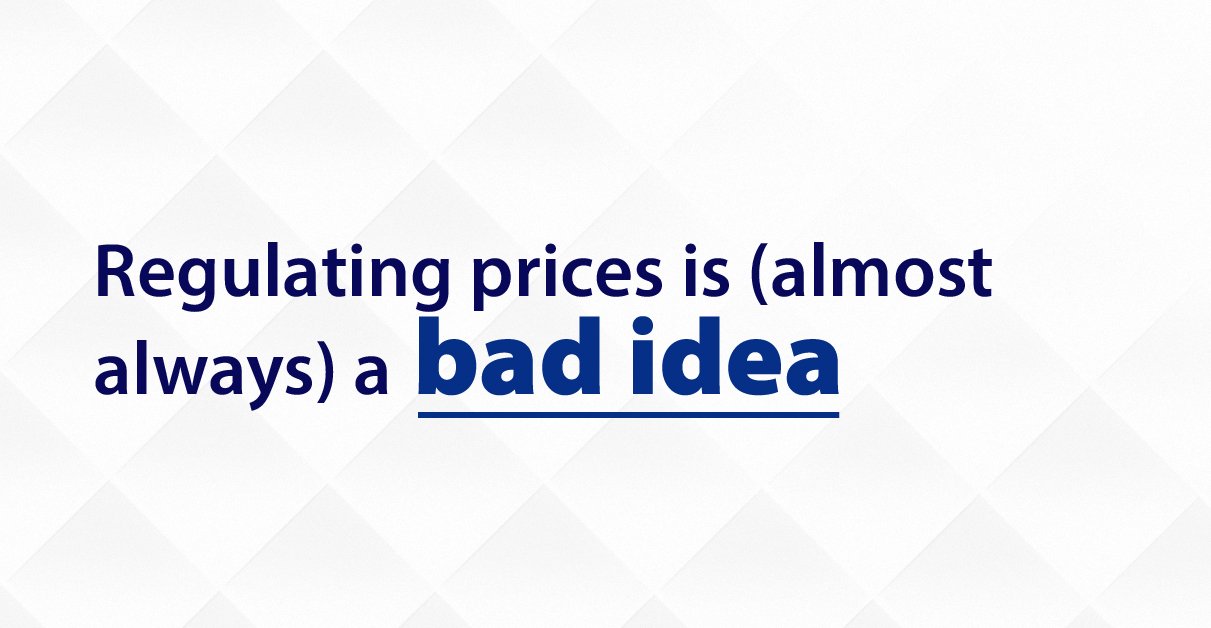Uri Weinstok
Partner Costa Rica
[email protected]
High prices commonly lead to an attempt to control them through regulation. This remedy, while tempting, is rarely a suitable solution. Rather, price controls tend to aggravate problems before they fix them. Paradoxically, even in the face of abundant evidence and repeated examples of failure, some consumers feel protected by this type of measure even though it almost always ends up harming them.
Indeed, markets are not perfect, and sometimes it is necessary to intervene in them. But price control is not the only, nor the best, possible intervention.
Inflated prices are only the symptom and not the cause of the problem (a problem that does not go away or is resolved by setting prices). Therefore, a successful intervention must always start by finding out the reasons why the market is not working effectively and then take measures that directly address these specific causes. Measures that work include eliminating barriers to promote the entry of more competitors, sanctioning those who carry out monopolistic practices, and amending regulations that limit the ability to compete aggressively.
Regulating prices as a first option and permanently is inefficient for several reasons. The regulator usually has limited information about the product and the market, making it practically impossible to set the price at the competition level. In addition, regulations frequently seek other purposes beyond the benefit of the consumer (such as protecting market competitors). The formulas used to calculate prices often contain deficiencies and the process to apply them is costly. In addition, there is always the risk that the regulator will be influenced either by business or political interests. All of the above concerns wind up making the products more expensive at a heavy cost to the consumer.
Wisely, the Law for the Promotion of Competition and Effective Consumer Defense states that price regulations must always be a measure of last resort, to be used only when it is not possible to introduce competition in the market in another way. In addition, price regulation must be temporary and applied only while the conditions that justify them remain ongoing. This tenet implies, of course, that in the meantime actions will be taken to eliminate the underlying problem and not have to extend price control beyond what is necessary.
Resorting to price control without first exhausting other regulatory options generates multiple undesired effects. Many times the price set is higher than the market price, so consumers end up paying more than what they would pay if there were competition. Other times, the price is set too low and does not allow companies to operate profitably, creating shortages. Traders sometimes raise the price of other products to subsidize the losses generated by regulation, and in many cases, informal markets are also created to evade controls.
One or another of such situations occurs in practically every case of a governmental attempt to limit prices and rates set in the country. Not surprisingly, the prices of regulated products in recent years have grown three times higher than those offered by competitors.
Price controls not only generate inefficiencies and cost overruns that affect basic consumer products, but they also add cost to each successive stage of the production chain. Moreover, when the regulated product or service is used to produce others, inefficiencies multiply in related markets. In other words, in the end, consumers end up paying more because of the regulation, which is exactly the opposite of the goal sought when setting prices.
Although price regulation may be justified when it is impossible to introduce market competition in other ways, the way to favor consumers is to regulate only the activities where price control is essential, to do it temporarily (and in parallel try to eliminate the barriers that impede competition when possible), and look for formulas and mechanisms that stimulate competition instead of nullifying it.
Originally at crhoy
Uri Weinstok
Partner Costa Rica
[email protected]




